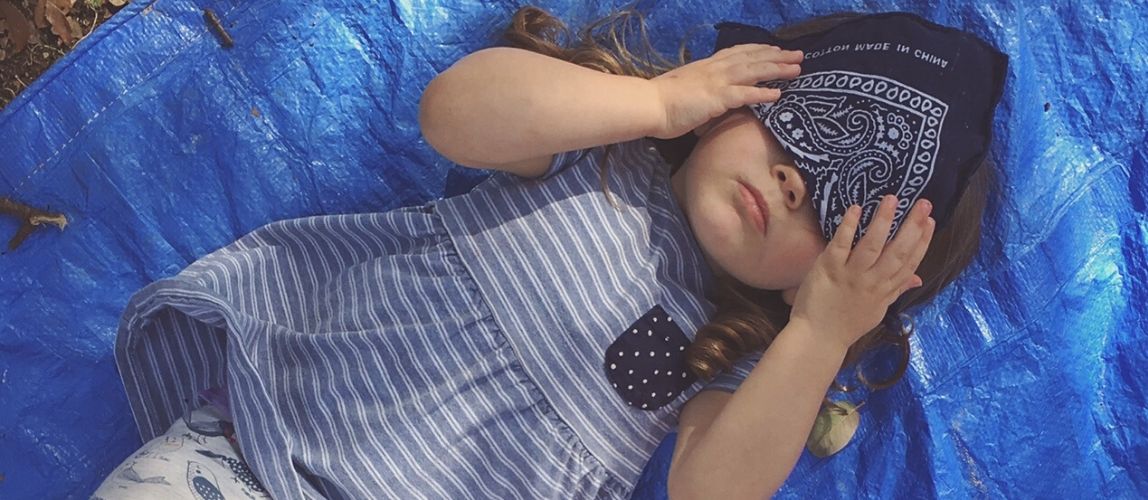Parents and teachers are talking a lot about the benefits of play these days (Hurrah!). Play—and especially independent play—is essential for a whole range of physical, social and cognitive skills. And, for parents who are balancing so much right now, independent play can be just the trick to keep kids busy and learning while giving us the time we need.
But any adult who expects kids’ independent play to look like total engagement and focus the entire time is going to be disappointed. And that’s great news. Because once we let go of our notion of lulls in kids’ play as a problem, we free ourselves from the need to solve it.
Believe me; it is easier to feel the value of play when kids are humming along in unison, and I still feel a sense of anxiety when the energy of play starts to dwindle. I have had to train myself to hold back, though, because the magic that can follow a lull is well worth the wait.
Here’s how we can learn to support the lulls in kids’ play to help them develop independent play skills.

Adjust our adult expectations of kids’ behavior.
Sometimes, it pains me to move my kids on from play. In other moments, I feel like the entertainment committee, stressed out by keeping my kids occupied.
The difference is not in the children involved, but in our adult expectations, which, in turn, impact the way we adults view and support kids’ play.
‘Parent’ is not actually a verb, not a form of work, and it isn’t and shouldn’t be directed toward the goal of sculpting a child into a particular kind of adult. — Alison Gopnik, The Gardener and the Carpenter: What the New Science of Child Development Tells Us About the Relationship Between Parents & Children
Set up an inviting environment.
Ideally, kids have access to sensory rich materials, an engaging play scenario and, perhaps most importantly, both the time and the freedom to play in their own way. When you offer this kind of environment, you are much more likely to see how young children can and do sustain their play.
Stop mistaking lulls for boredom.
The trick is, their play looks like the play of a young child. In the early years, children’s play can appear uneven, made up of periods of intense activity, lots of switching gears and lulls. The brain of a young child is chock full of neural connections, but those connections are rather disorderly by design, so that a child’s actions are naturally less consistent and focused than an older human’s. The ebb and flow between active play and lulls allows children to explore many interests and, ultimately, helps them to develop their brains and their stamina for play.
In my observations, many adults—myself included!—value the active moments in play, while they mistake lulls as disengagement or loss of interest.
American parents… (I do not exclude myself) worry too much and provide their children with too little space to grow. —Paula Fass, The End of American Childhood:A History of Parenting from Life on the Frontier to the Managed Child
If we decide play has become “unproductive,” we often intervene, redirect or move a child on to something else, often something more structured. When we do, though, we rob that child of a lull that, with the right amount of time and space, could have turned into reinvigorated play, or even a brand new play idea.
Intervene less; observe more.
Research shows that when adults start to direct play, children lose interest and play tends to wind down. So, if we intervene when we perceive a dip in engagement, we may actually undermine our very efforts to support greater engagement.
And, when we consistently undervalue and interrupt pauses in play, even with the best of intentions, we leave kids unfamiliar with lulls and inexperienced with how to get the full benefit from them. As they grow, kids do not develop that “lull muscle,” and later, when they hit a lull, they are reliant on the crutch of adult intervention to cope with it. Rather than being ready to use these quiet moments as natural parts of creative play, kids more readily arrive at the dead end of “I’m bored.”
Try these simple practices to help your child learn from lulls:
- Create your own rich play environments—Set up the backyard or a mini maker space in your house to support play. Want a more specific starting place? Search for a DIY activity idea to try.
- Seek out open-ended play—Find experiences that offer stimulating, but largely unstructured, activities and that allow kids plenty of time and space to play in their own way.
- Question your worried voice—Pay attention to your inner dialogue. If you notice yourself jumping to the rescue during a pause in play, ask yourself: Do I worry that my child has lost interest? What if I look at that disengagement as a lull? How, if at all, does that change my perception?
- Support lulls—See if you notice a lull in play. What does your child do in that moment? Do they seek your involvement? Do they shift to moving around? Do they remain quiet? No matter how they approach it, try to wait it out. Then, wait just a bit longer. You may see a new idea catch fire.
